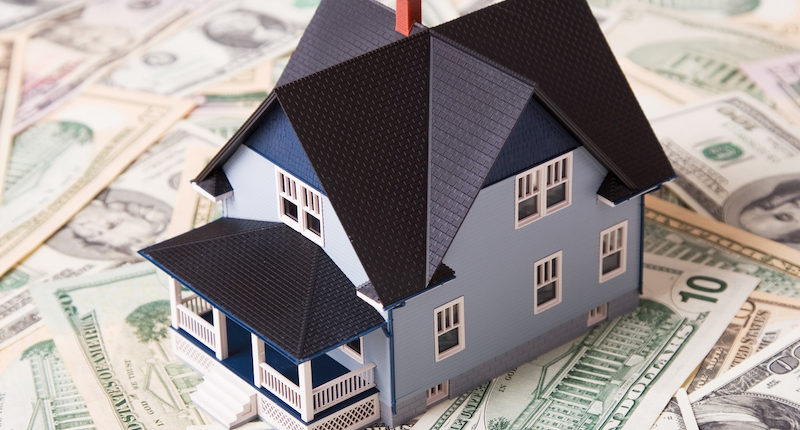How to Avoid Foreclosure in Los Angeles?

It’s important to know all the details regarding how to avoid foreclosure in Los Angeles.
Learn now.
Introduction
Buying a new home means moving into a new season in life where there is a lot of hope and excitement for the future. Plans are made, new furniture is bought, memories are created, and more. Nobody ever buys a new piece of property with the intention of letting it go into foreclosure. Unfortunately, though, it happens more often than you’d imagine.
With the right legal team on your side, however, you can avoid foreclosure in Los Angeles. Here’s how it can be done.
What to Expect When Foreclosure Happens
When you purchase a new home, you sign a mortgage with a lender agreeing to make payments until the loan is paid in full. For one reason or another, you may have to miss a payment or two. It’s understandable – life can throw curve balls at times. Maybe you lost your job or have been ill. Whatever the reason, many lenders provide you with a grace period. They will let you know what is outstanding and may even assess late fees.
As you finally get life back on track, you try to move forward and catch up on your payments. This is harder than it seems. With the late fees, additional interest, and a stack of payments, it is easy to fall even more behind. The longer you take to bring your loan current, the greater chance your home is at risk.
Keep in mind that each loan will state this specific amount of time allotted, though 90 days is the most common. Right around the 60-day mark, your lender will likely send a demand letter requesting payment before you hit that 90-day mark.
So, what happens when your mortgage moves into the default phase?
According to the Consumer Finance Protection Bureau, your loan servicer must wait 120 days from the date of your default until it can formally start the foreclosure process. So, a Notice of Default is filed at 90 days and then you will have 30 days to bring your account current (or take an alternative action) before the foreclosure process begins.
At 180 days, there is a Notice of Trustee Sale. Up until this time you have had the chance to pay off everything regarding your home. That means paying off your missed payments, outstanding interest, late fees, property taxes, and homeowner’s insurance. If you don’t, the lender is able to move forward with setting a date to auction off your home. This is their attempt at recovering their costs. When the sale date is set, you will be notified.
The auction will take place at least 20 days from the Notice of Trustee Sale. If you are trying to work with your loan servicer or working with an attorney regarding legal remedies, this auction can be reset for a later date. If the house goes to auction, it will be awarded to the highest bidder. The bank will take what is owed to them.
Ways to Avoid Foreclosure in Los Angeles
There are a few different ways to avoid foreclosures in California, including bringing your account current, filing bankruptcy, seeking to modify your loan, or a short sale. Let’s take a look at each.
Keep Payments Current. Keeping your account current isn’t always an option, but bringing it current once you have been in default is a surefire way to avoid foreclosure. Contact your lender and discuss payment options. Keeping the lines of communication open is a much wiser choice than avoiding your lender altogether.
Bankruptcy Relief. Filing a Chapter 13 bankruptcy automatically will halt the foreclosure process. This will give you a chance to consolidate all of your debts, make payments, and bring your loan up to date. A bankruptcy case can be filed before the foreclosure process begins – or after it has already started.
Loan Modification. A loan modification is another means to prevent a foreclosure from taking place. This is something referred to as restructuring the loan and it is when your lender agrees to modify the terms of your mortgage so that you are able to get back on track. Sometimes it means granting a forbearance, reducing the principal balance, or lowering the interest rate.
Short Sale. You may not want to sell your home, but getting your lender to agree to accept a sale of the property at the current fair market value (without requiring the full loan amount to be paid off) can give you a chance to start over without a foreclosure on your record. Depending on the market, the lender may be agreeable to this and then just cut their losses.
Deed in Lieu of Foreclosure. Finally, if foreclosure is inevitable, your lender may be agreeable to a Deed in Lieu of Foreclosure. In other words, it allows you to transfer your ownership of the property to the lender. This relieves you of your indebtedness – or at least most of it – but it will stop the foreclosure process.
What to Look Out For – And Why You Need an Attorney
If you have found yourself in a position where you are maneuvering the foreclosure process, then you may be ready to jump at anything to get your lender to stop so that you may keep your home. Though this could be dangerous. If your lender offers you a forbearance agreement, you may want to reconsider. These are often offered as a means of stopping the foreclosure – and they make it sound like a wonderful option. Unfortunately, they often require a lump sum payment upfront with smaller payments to catch up. Should you miss any payments, it usually gives the lender the right to immediately take action toward a foreclosure – without a way to stop it.
Conclusion
Hiring an attorney can be a great way to ensure that your rights are protected. Even if you are struggling to pay your mortgage, you still have rights. Whether you decide you want to file for bankruptcy, do a loan modification, discuss a short sale, or something else – your attorney will be able to handle everything for you so that you can feel confident about your ability to stay in your home with your family.
Are you in search for a certified attorney to represent you?
Let us help you find one today!

